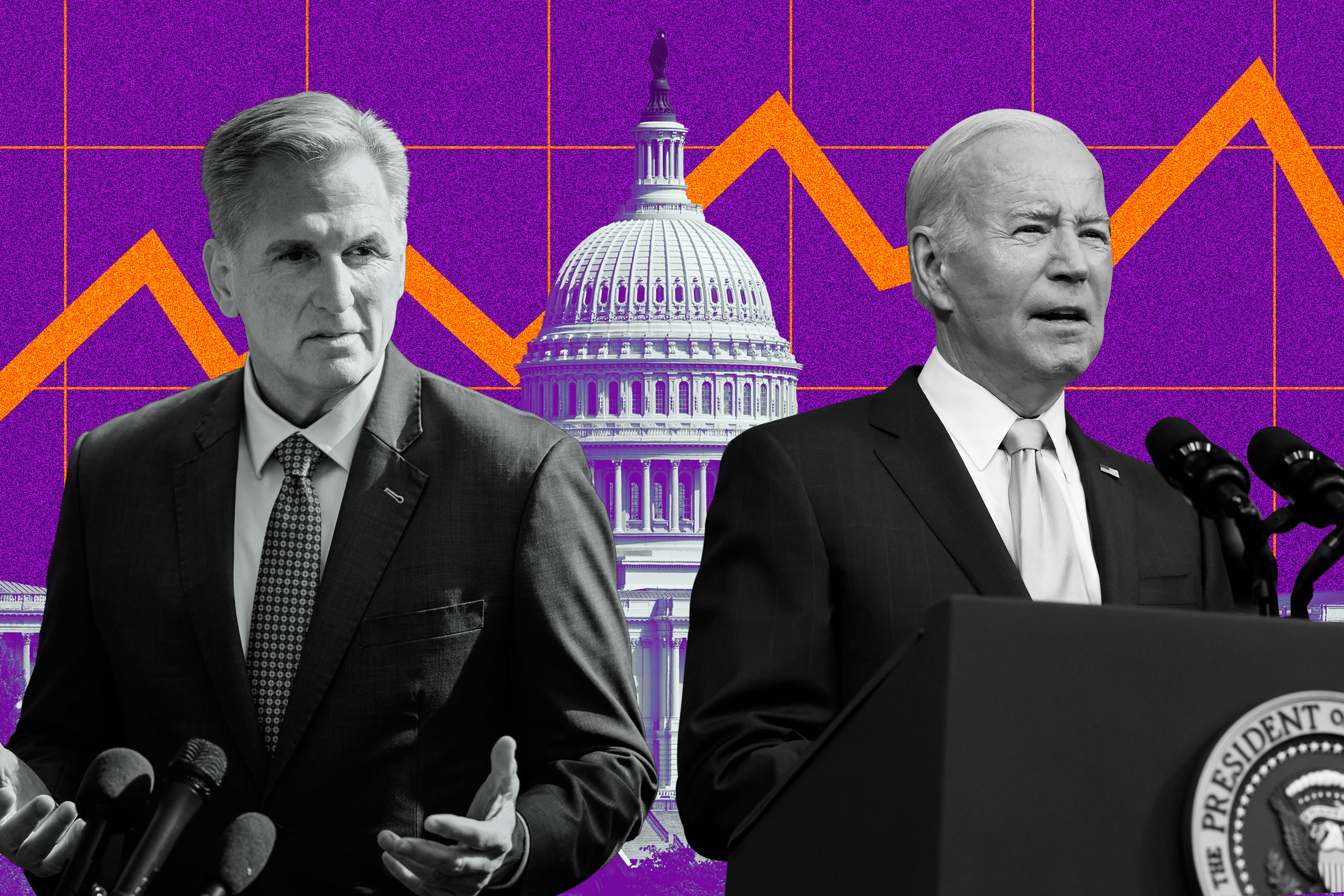 [ad_1]
[ad_1]
Traders are holding their breath because the debt ceiling standoff heats up and consultants sound the alarm a few potential default.
The debt ceiling, or debt restrict, is the utmost the U.S. federal authorities is allowed to borrow to fulfill its monetary obligations. These obligations embody Social Safety and Medicare funds, cash resulting from authorities bondholders and collectors, army salaries, tax refunds and extra.
There are simply two weeks left till the “X-date” — the date when the federal government may run out of cash to fulfill these obligations. Lawmakers met with President Joe Biden this week to hammer out a deal to boost the debt restrict and keep away from a default, however they have been unsuccessful thus far.
Specialists agree that a default would trigger severe harm to the economic system. This is what traders have to know.
Why the debt default standoff may trigger volatility
Whereas consultants agree that lawmakers are more likely to attain a deal — probably on the eleventh hour — they are saying the uncertainty over precisely how the controversy will play out means traders ought to brace for a rocky few weeks within the markets.
“Occasions that trigger uncertainty are likely to generate market volatility,” says David Li, wealth companion at J.P. Morgan Wealth Administration. That may be very true of political occasions — the market tends to carry out higher within the aftermath of midterm elections as soon as outcomes are sure, whatever the winner, for example.
In a analysis word this week, Morgan Stanley strategist Michael Wilson mentioned that whereas most of his agency’s shoppers consider that the the debt ceiling disaster will probably be resolved, the decision gained’t occur “with out some near-term volatility.” Moody’s Analytics economists Mark Zandi and Bernard Yaros have taken an analogous stance: Elevating the debt ceiling will “certainly be messy and painful to look at, producing vital volatility in monetary markets,” they warned final month.
Wilson notes that traditionally, not all shares have carried out equally in a debt restrict standoff: Power and utility firms are likely to carry out properly within the leadup to a decision, whereas tech, healthcare, client staples and dividend progress firms are likely to carry out properly within the aftermath. After all, prior efficiency doesn't assure how shares may carry out this time round.
What are the results of a protracted debt ceiling standoff?
An prolonged legislative battle over elevating the debt ceiling is more likely to have main financial repercussions, based on Moody's economists, and will embody a inventory market selloff, widening company credit score spreads (that are an indication of a weakening economic system and better ranges of threat for traders) and a weaker U.S. greenback.
These potential penalties could also be what’s essential to spur lawmakers to make a deal, they added.
How ought to traders react to the debt restrict standoff?
Most monetary consultants suggest sustaining a long-term strategy to investing.
“Debt ceiling information, for higher or worse, might be fluid,” Li says. He cautions his shoppers towards making an attempt to time the market. As an alternative, Li recommends sticking with a diversified portfolio that's not over-concentrated in a single business and accommodates a number of sorts of property.
Whereas the headlines could seem scary, it’s essential to keep in mind that some degree of volatility available in the market is regular.
“Volatility available in the market is at all times going to be current,” says Kyle McBrien, a monetary planner at Betterment. “At present, it is the debt ceiling. Tomorrow, it may very well be one thing completely different.”
Making a long-term investing plan is what's going to show you how to climate that volatility within the short-term, he says: “The market has at all times been resilient.”
Extra from Cash:
A U.S. Debt Default May Ship the Housing Market Right into a 'Deep Freeze'
What's Happening With the Debt Ceiling? 6 Widespread Questions, Answered
Are Social Safety Funds at Danger if the U.S. Defaults on Its Debt?